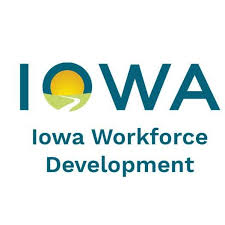GDM Partnership moves to save bus rapid transit

PERRY BEEMAN Jun 3, 2015 | 8:06 pm
5 min read time
1,071 wordsAll Latest News, Business Record Insider, TransportationThe Greater Des Moines Partnership has formed a new business group to gauge support — financial and otherwise — for a troubled proposal to establish the area’s first bus rapid transit service.
The Partnership also plans to assemble an ad hoc committee of the Capital Crossroads visioning effort to bring area government and business leaders together to solidify support for the train-like bus service, even if that means changing the route or other elements of the plan, said Partnership CEO Jay Byers.
Byers wants local government officials, the Des Moines Area Regional Transit Authority, the Des Moines Area Metropolitan Planning Organization, Capital Crossroads and perhaps others to come up with an acceptable plan to launch a bus rapid transit line. Then the area will be in position to apply for a federal grant in the next year, he added.
Bus rapid transit, or BRT, would have its own name, special bus shelters, and buses with devices that would speed the trip by lengthening the time that traffic signals are green.
The Des Moines Area Regional Transit Authority commission on Tuesday voted to shelve plans to seek a $20 million federal grant for the $25 million project after the Des Moines City Council and some suburban officials questioned the plan to provide the service on a loop from downtown Des Moines along Ingersoll and University avenues. The commission had previously voted to submit the application.
Some questioned whether DART could afford the expansion, which would bring operating costs of nearly $1 million a year. Others wondered if the proposed route was the best place to try the new service, which has been strongly supported by millennials and others interested in improving options for alternatives to driving vehicles.
Des Moines City Councilwoman Christine Hensley, who serves on the DART commission, said Des Moines City Manager Scott Sanders is meeting with his colleagues in the suburbs to get their input on the future of the proposal as the Partnership discusses the projects with businesses. She added that the city is looking for other sources of financial support.
“What has transpired is that there is definitely some concern among some of the suburbs and the folks on the Des Moines City Council,” Byers said. “Is this the right plan? Is this the right route? What are the overall funding issues? Those are the questions that need more discussion.”
Byers said the Partnership supports the development of a bus rapid transit line, and perhaps several routes eventually using that service.
“We want to come up with a proposal so we can sing from the same song sheet when we go for another grant,” he said.
“That’s how Greater Des Moines gets things done,” Byers said. “Our secret sauce is regionalism, public-private partnership, visioning and leadership, and this project has all four.” Initial meetings of the new business group will take place this week, he said.
Eventually, the ad hoc committee of Capital Crossroads may send a delegation to Grand Rapids, Mich., and perhaps Kansas City, Mo., to see the systems there, he added.
The Partnership will start with a small group of business representatives but plans to expand that later, Byers said. He encouraged members of the business community to contact the Partnership if they are interested in serving.
It’s likely that Bethany Wilcoxon, who staffs Capital Crossroads for the Partnership, will coordinate the work on the bus rapid transit, Byers said.
“We thought it was important to continue to advance the discussion, whether we go with the original plan or whether it needs changes,” Byers said. “We want to play a much larger role,” he said. “We want to get businesses a lot more involved than they have been to this point.”
Some businesses already have agreed to support the project financially, and Byers hopes others will join them. “We are hearing from a lot of businesses that moving to a more robust transit system is important and they are willing to support that, and they are willing to financially support it,” Byers said.
The area needs the service to stay competitive, he said. Research across the country, and across the world, has shown that millennials and others want to be able to get around without driving a car, he added.
“If you look at the research, the message is overwhelming that millennials want more transportation options,” he said.
“We think BRT is important as Greater Des Moines continues to grow that we move from a bus system, which is basically what DART is, to a transit system that offers transportation options,” Byers said.
It’s a competitive issue, Byers said. “If you look at our peer cities, and cities we compete against, some already have BRT,” he added.
For example, in September Omaha received a $14.9 million grant for a new bus rapid transit service from the same U.S. Department of Transportation grant program DART had eyed. The program is designed to support economic development.
Byers said BRT lines offer metro areas that aren’t big enough to support light rail service — such as Greater Des Moines — a chance to offer speedier mass transit trips, at less than a tenth of the cost of building a train line.
Hensley said Sanders will work to gauge the interest of area city managers.
The question, Hensley said, is this: “Is there the will to provide financial support for BRT?” She added: “Do we need to revisit the route?”
There has been some talk of making the bus stops less fancy to save money, Hensley said in an earlier interview.
The project was one of a long list the Partnership endorsed before the annual lobby trip to Washington May 10-12. During the trip, officials of the U.S. Department of Transportation hinted that Des Moines would be better off not backing two large grant proposals, one to rebuild downtown bridges, and another to pay for most of the bus rapid transit development.
The Des Moines City Council approved an application for the bridges, but didn’t take action on the BRT grant.
Hensley later said that support for the project among Des Moines council members had wavered. Mayor Frank Cownie said in an interview that he wonders if DART would be better off replacing more of its buses than adding a new service.










